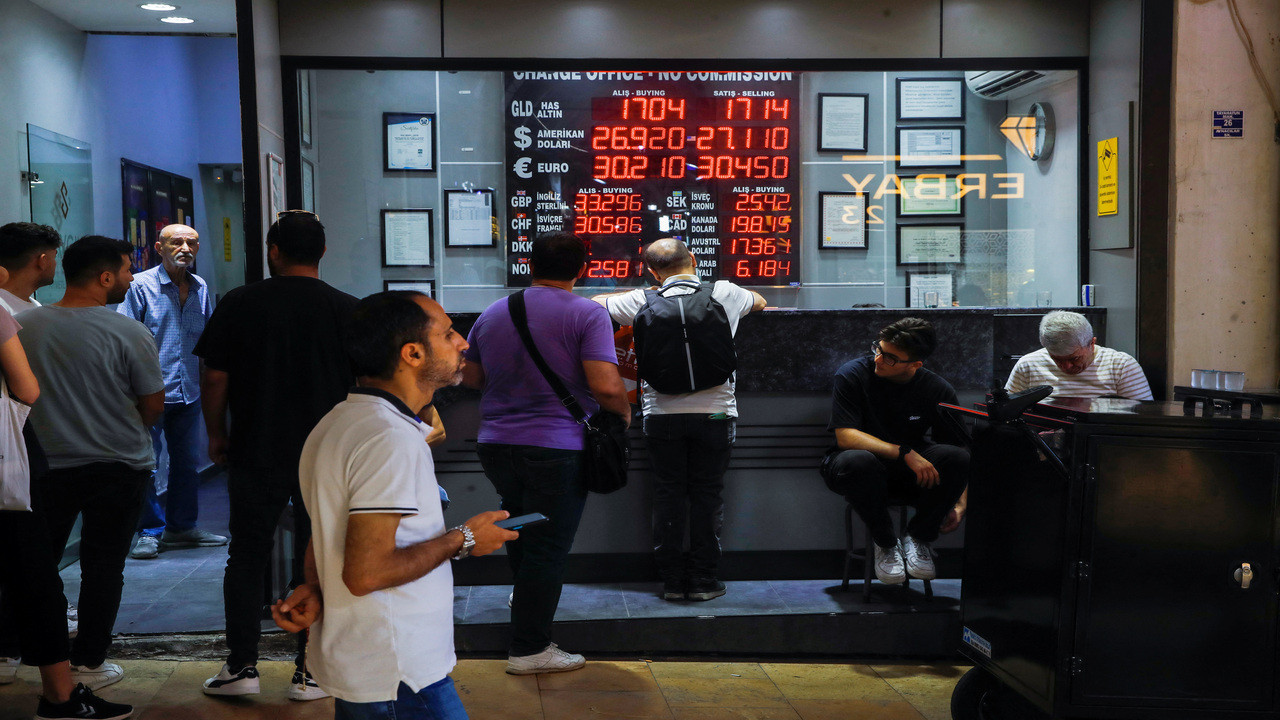Turkish Central Bank raises policy rate to 17.5 pct
Turkey's Central Bank on June 20 increased its policy rate by 250 basis points, bringing it to 17.5%. This marks the highest rate recorded since October 2021.
Reuters
Turkey's central bank hiked its policy rate by 250 basis points to 17.5% on Thursday, continuing to reverse President Recep Tayyip Erdoğan's low-rates policy, but the tightening fell short of expectations with inflation expected to rise sharply.
It was the second meeting under new Governor Hafize Gaye Erkan, who is leading a change of course after the one-week repo rate (TRINT=ECI) was cut to 8.5% from 19% since 2021 despite soaring inflation.
The bank said after its monetary policy committee meeting that it will continue to tighten monetary policy and expected further upwards pressure on inflation due to recent tax hikes.
MPC Decision of 20 July 2023: https://t.co/g9qib1pv0B pic.twitter.com/UyLSMImHdg
— CentralBankofTürkiye (@CentralBank_TR) July 20, 2023
"Monetary tightening will be further strengthened as much as needed in a timely and gradual manner until a significant improvement in the inflation outlook is achieved," it said.
The less-than-expected tightening comes despite expectations that inflation, which fell to 38.21% in June, will rise in the rest of the year. Economists are revising their year-end forecasts to as high as 60% due to the lira's continued decline and various tax hikes in July.
The bank had raised its key rate by 650 basis points to 15% in June and had been expected to hike to 20% this time, according to the median estimate in a Reuters poll.
Economists expect the policy rate to rise further to 25% by year-end, still leaving real rates negative. They warn that Erdoğan's influence over the central bank limits how far it can go in tightening policy.
The lira traded at 26.9345 against the dollar after the announcement, little changed from beforehand. It has weakened 30% so far this year. However, some markets have performed rather well since Erdoğan's re-election.
The low-rates policy advocated by Erdoğan sparked a currency crisis in late-2021, with the lira losing 44% that year. In 2022 it weakened another 30% despite central bank efforts to counter forex demand by using its forex reserves.
The lira depreciation has stoked inflation, sending it to a 24-year high of 85.5% in October last year. The continued decline this year is expected to feed into inflation in coming months given Turkey's reliance on imports.

 Turkish lira reaches all-time low prior to interest rate announcementEconomy
Turkish lira reaches all-time low prior to interest rate announcementEconomy Turkey's Central Bank hikes interest rates after 27 months under new governorEconomy
Turkey's Central Bank hikes interest rates after 27 months under new governorEconomy Turkey’s Central Bank reserves surges to $108.6 billion in JuneEconomy
Turkey’s Central Bank reserves surges to $108.6 billion in JuneEconomy